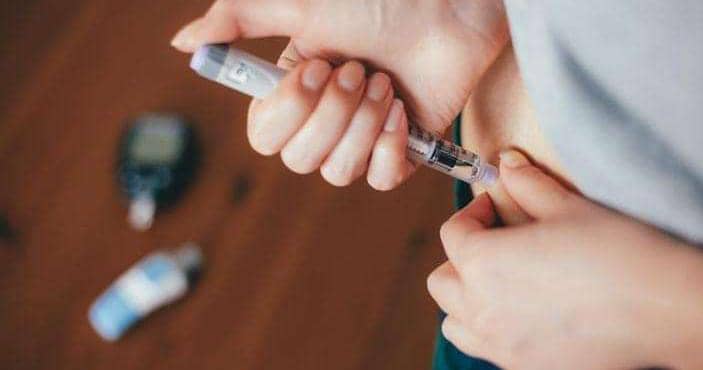Chinese researchers claim to have cured diabetes for the first time, after a 59-year-old male patient underwent a groundbreaking stem cell transplant in 2021 and has not taken medicine since 2022.
The experimental procedure entailed generating synthetic pancreatic cells, which are responsible for producing insulin and regulating blood sugar levels.
The man lost nearly all of the activity of these cells, called islets, after developing type 2 diabetes 25 years ago. He needed numerous insulin injections each day to keep himself from going into a diabetic coma because he was considered to be at high risk of fatal complications.
The human body naturally produces insulin, a hormone that regulates blood sugar levels. Pancreatic dysfunction causes people with diabetes to have difficulty controlling their blood sugar levels. To find out how much sugar is in their bloodstream at any one time, people with diabetes frequently use blood sugar monitors. This aids individuals in choosing the right foods to consume and when to take insulin in order to control their illness.
Although diabetes has never been “cured,” medical professionals have discovered ways to put the condition into remission. However, in order to prevent the blood sugar issues from recurring, patients must maintain a relatively tight diet and exercise programme to stop the blood sugar problems returning.
The Chinese example, however, indicates that blood-sugar regulation can be restored without a patient’s lifestyle being altered. Stem cells, a type of blank slate cell that can be differentiated into any of the several cell types required by the body to operate, were used in the treatment. Stem cells can differentiate into brain, muscle, kidney, or even pancreatic tissue given the correct circumstances. This therapy converted the patient’s stem cells into pancreatic cells using a novel chemical cocktail.
These cells produce insulin, which tells the body when to pull sugar from the food for energy.
In diabetics, the pancreas doesn’t produce enough insulin to regulate blood sugar. Too much or too little sugar in the blood can cause nerve damage, kidney damage, heart disease and more.
By implanting the new, lab-grown cells, which can produce insulin, the patient could begin producing their own insulin again, researchers suggest. This is what doctors have observed in the Chinese patient.
Timothy Kieffer, a professor of cellular and physiological sciences at the University of British Columbia in Canada who was not involved in the research, told South China Morning Post, “I think this study represents an important advance in the field of cell therapy for diabetes.
“Even though this conclusion is promising, more work needs to be done before it can be made widely accepted. Scientists will then need to test their treatment on other patients. Professor Kieffer stated that they will need to figure out how to scale up their business once they have tested it on additional participants.
Currently, turning blank ‘seed cells’ into functioning pancreas cells is incredibly intricate, time-consuming and expensive. Scientists will have to make the process easier if it’s going to be feasible for most people.
There is a chance it might only work to treat type 2 diabetes, which is the more common form of the disease.
Type 1 diabetics, whose pancreas has been attacked by the immune system, might have a harder time using this treatment because their immune system might reject the new implanted cells, the study noted Regardless of all the hurdles still left to cross, this could be a huge step forward for the millions currently living with diabetes and thosebwho will likely go on to develop the disease.
‘Our technology has matured and it has pushed boundaries in the field of regenerative medicine for the treatment of diabetes,’ Dr Yin Hao, one of the lead researchers said.
The study was a collaboration between three institutions based in Shanghai -the Shanghai Changzheng Hospital, the Centre for Excellence in Molecular Cell Science under the Chinese Academy of Sciences and Renji Hospital.
Credit: Vanguard






Leave a Reply